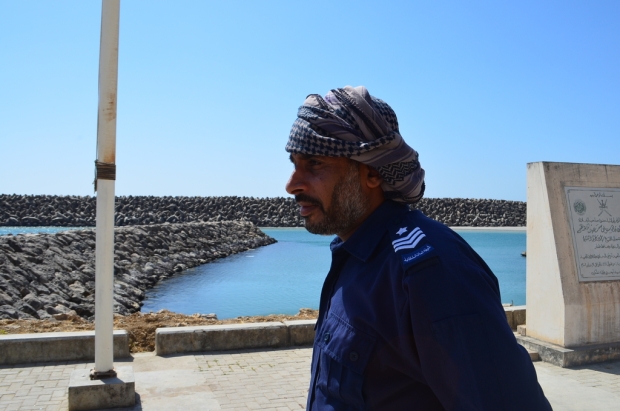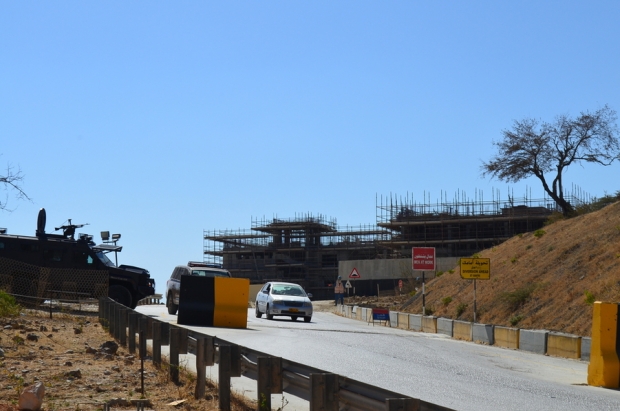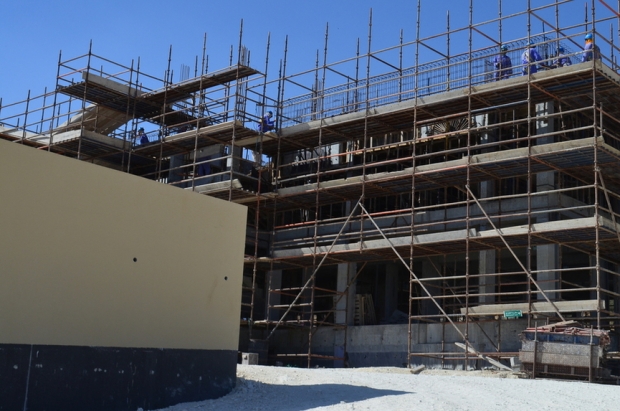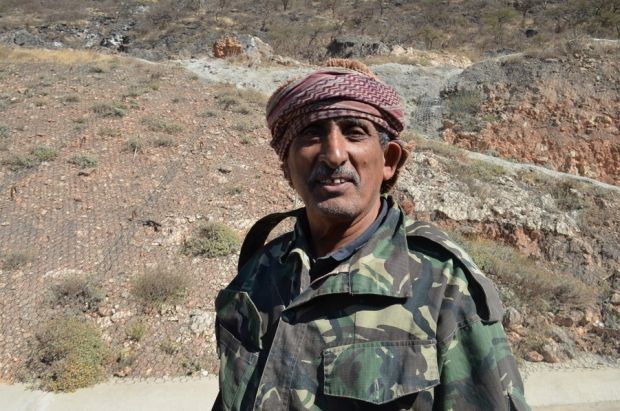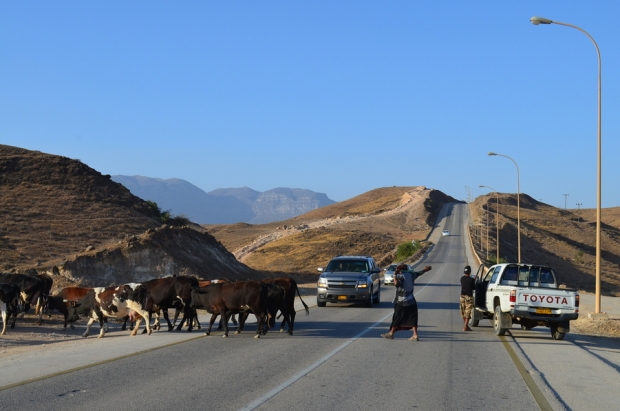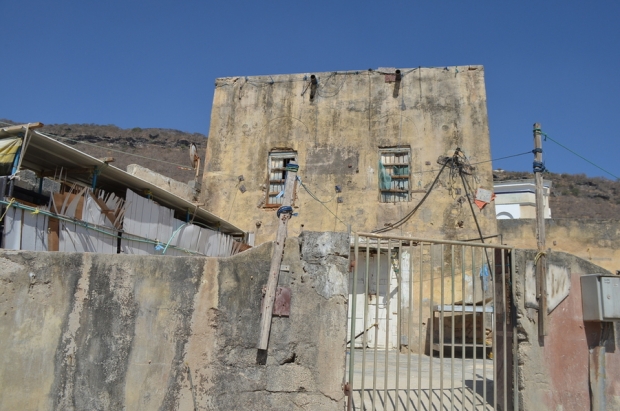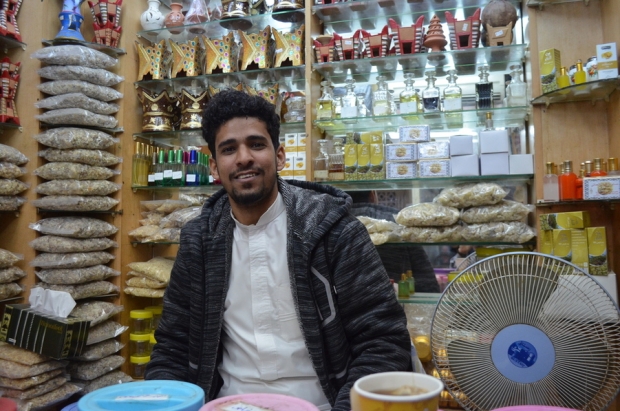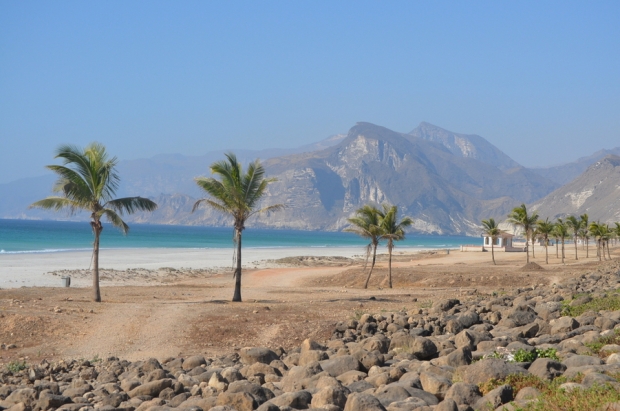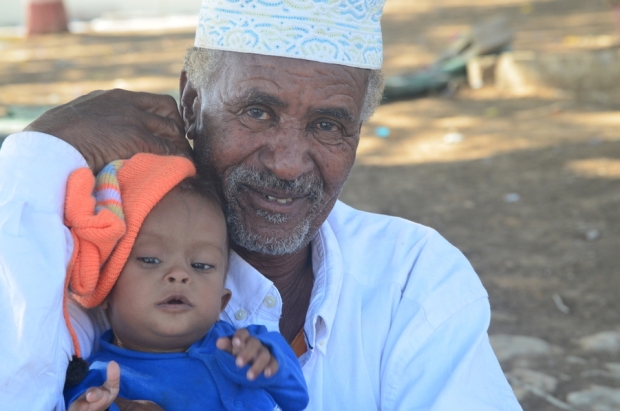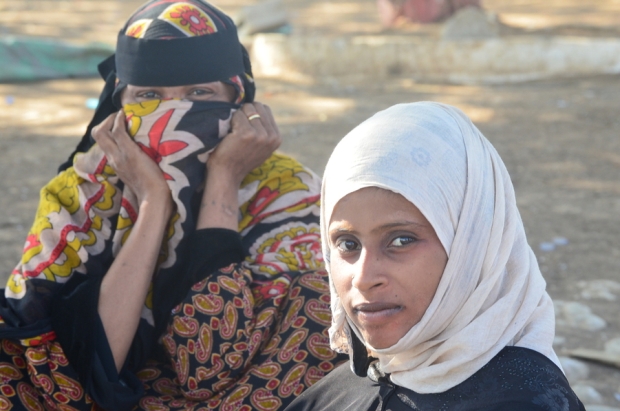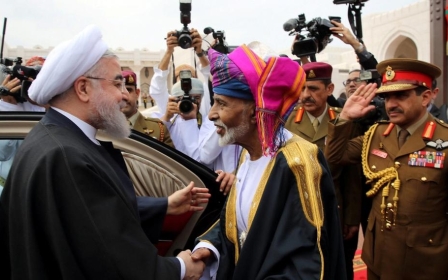'Salalah forever': Oman's security wall can't dent deep Yemeni ties
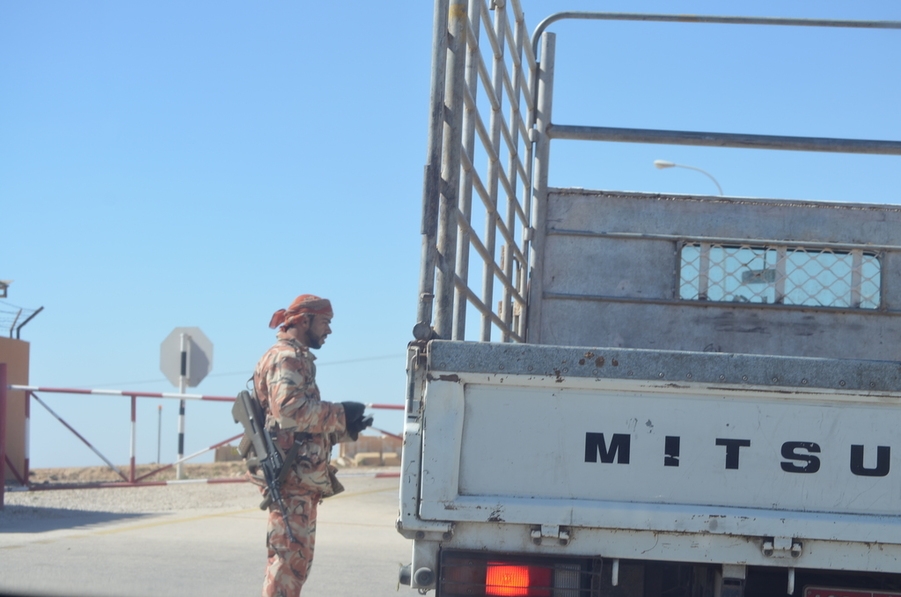
DALKUT, Oman - The Omani coastguard officer, Abdullah, looks out on the calm blue waters of the Arabian Sea close to the Yemen border. "This time is quiet. The night is busier," he said.
Yemeni fishermen come into Oman's water to catch fish, then return to Yemen to sell them. If the coastguard catch the fishermen they send them back, he said.
But other boats carry a different cargo. Qat, a plant chewed for its stimulant effects, is popular in both Yemen and Oman. Its prohibited status in Oman means smugglers come by night to deliver and sell it here.
"If we catch them, we take them to jail," said Abdullah, crossing his hands as if they were manacled.
During a visit to the border, Middle East Eye met a man on his way to Yemen to buy qat.
"Many Omanis cross into Yemen to get qat," said Sayid, a Salalah native.
"They buy it, chew it, then they come home. For us, qat does not have a bad reputation, but alcohol has a bad reputation. Yemen and Salalah are crazy for qat. Especially at the weekend, you will see all of Salalah there."
Yemen and Salalah are crazy for qat. Especially at the weekend, you will see all of Salalah there
- Said, Salalah
One packet of qat, which lasts as long as the 24-hour visas most Omani qat tourists buy, costs around 10 riyals. "The prices have gone up in the last two months. It used to be seven riyal. The demand is high so the prices rise," he said.
Another reason Omanis cross into Yemen is to get married: weddings in Yemen are cheaper, locals say.
Oman has been tightening the border since the war in Yemen began three years ago as more Yemenis have sought refuge in their stable neighbour, and as a deterrent to smuggling.
"We have to be careful since in the last 10 years more people are migrating from Yemen, like from Mexico to the US," said a veteran Omani writer from Salalah.
Building a wall
One of the ways Oman is moving to prevent smuggling people and goods, including stolen cars and qat, is by building a wall along its border with Yemen.
A military officer confirmed to Middle East Eye that the wall is now 192km long, after five years of construction beginning in the north. Building will continue for at least another three years, he said.
"I think the wall is good for both countries, to stop the smuggling – cars, people, animals, and qat. There are so many problems coming out of Yemen," said the writer, who is close to the government.
To prove its humanitarian approach, he said that Oman is building a new medical centre close to the border with Yemen to treat people injured in the war.
"To take patients to Salalah is maybe three to four hours, so it is easier to treat them at the border." MEE could not independently verify this.
At the Sarfayt border crossing high in the mountains on the southern tip of Oman overlooking the sea, there is major construction work underway to replace the old border facility with a new larger one.
Omani police and army, who between shifts at the border currently reside in Dalkut, the local fishing village, will be housed here in future, said a plainclothes officer.
The presence of a Western journalist at the border post is met with some suspicion. "Why you ask questions?" said one of the officers. "Bring your passport."
After looking over our documents, initial suspicions gave way to traditional Omani hospitality.
We were invited into the station for Arabic coffee and a local sweet, halwa. Behind the chatty, young uniformed police officer, well-built national security officers watched sullenly.
Outside a queue of cars waited at the border gate to have drivers' visas and IDs checked before crossing into Yemen.
The police and army officers at the border and the coastguard officers were from Muscat, 1,000km to the north.
Soldiers from Salalah are generally posted to Muscat, a system that has been in place since the Yemeni Marxist-backed Dhofar rebellion of the late 1960s and '70s.
The close familial ties between Yemenis and the people of Dhofar has been a concern for Muscat since the war ended in 1976.
In the sleepy fishing village of Dalkut, MEE met a military veteran in his 60s at the restaurant. He said he is from the local border force, which is made up of the "Jebeli," or mountain people.
Its small forts, dotted along the coast and in the mountains, are painted in bright green.
The veteran, who still works at the local border force base, remembers the war, he said, but prefers not to discuss it.
Historic ties
Back in Salalah, business in the old Hafa souq is quiet at this time of year.
Many of shops sell frankincense, the biblical incense grown in Dhofar for millennia, and products derived from it.
Fadl Ahmad, a small stallholder in the souq, returns home to Yemen once every two months to see his wife, whom he recently married.
Since the war began, there have been no flights from Yemen to Salalah, so he has to drive 1,300 kilometres from Oman's southern capital to his family home in Yemen's southern port city of Aden.
There are many other Yemenis who, like Ahmad, have made a life in Oman. He has been working in the souq selling frankincense and other merchandise from his small stall for six years.
In recent years, Oman has tightened its visa programme for Yemenis, making it hard for them to enter the country.
Still, those who already have work visas, like Ahmad, can get them renewed every two years without problems.
The ties between families in Oman's Dhofar region and Yemen are deep and historic. Saleh al-Mahri, a Yemeni from the border region, runs a successful frankincense shop in the middle of the Hafa souq.
He opened it 13 years ago, although he said business at the moment is up and down.
"I sell to people across the Gulf and mostly in the Khareef season, when many people come to Salalah."
Khareef is the rainy season from late July to September, when the whole area is covered in thick cloud and the desert turns to lush green.
Mahri sells Dhofar perfume to France, he said, boasting that he has a regular customer who calls him from America to make orders. "I stay in Salalah forever," he said.
The next day he was driving to Yemen, three hours away, to help his friends across the border.
"I will help my friends because here the Yemenis are one people, we help each other. "
Yemenis with visa problems can turn to Mohammed Kilbani, a native Salalan with good ties to the military and border police who describes himself as a public relations officer.
"There are many Yemenis who have moved close to the border since the war," he told Middle East Eye.
"One minute after you cross the border into Yemen you will be offered qat in the street.
"There are a lot of problems in Yemen. That is why we cannot except all the Yemenis who want to come."
The authorities have at times suspended the visa system at the border when too many people come, he said.
Treating Yemeni sick
An exception is made for the injured and sick. Doctors who work with the chief of the border police verify the injuries and then those needed treament are allowed to enter Oman and are taken to the Sultan Qaboos hospital in Salalah.
"We have so many Yemenis here," said a staff nurse in the male medical ward at the hospital when Middle East Eye visited.
Yemeni patients and their families are here at the expense of the government, local sources confirmed.
Outside the hospital were a number of Yemeni inpatients and family members.
"Previously the numbers of Yemenis staying in the grounds was much larger, until the Ministry of Health found housing for them near the hospital," Kilbani said.
"Sometimes there were hundreds of people out here. The Ministry of Health said don't sleep here. Then they found a big building for them to stay in near the hospital."
Alhadai Qaid Mohammed, originally from Aden, sat outside the hospital with his wife Amal Salem and baby Qaid.
He showed us a medical document that said he was to be transferred to the Sultan Qaboos hospital in Muscat for treatment of his damaged back.
Their son, Qaid, has Downs syndrome and is an inpatient here in Salalah.
A hospital doctor in Muscat said the Royal Hospital and Sultan Qaboos Hospital in the capital have treated many Yemenis injured in the fighting, although numbers of Yemeni patients have fallen in recent months.
All are treated regardless of which side they are aligned with in the conflict, the doctor said.
Two planeloads of Yemenis who had received treatment for injuries and illness in Muscat were flown back to Yemen recently, an embassy source in London confirmed.
"Oman throughout is history tries to make friends with all the world," said the writer in Salalah.
"We have nothing in regard to Yemen except friendship."
Middle East Eye propose une couverture et une analyse indépendantes et incomparables du Moyen-Orient, de l’Afrique du Nord et d’autres régions du monde. Pour en savoir plus sur la reprise de ce contenu et les frais qui s’appliquent, veuillez remplir ce formulaire [en anglais]. Pour en savoir plus sur MEE, cliquez ici [en anglais].


